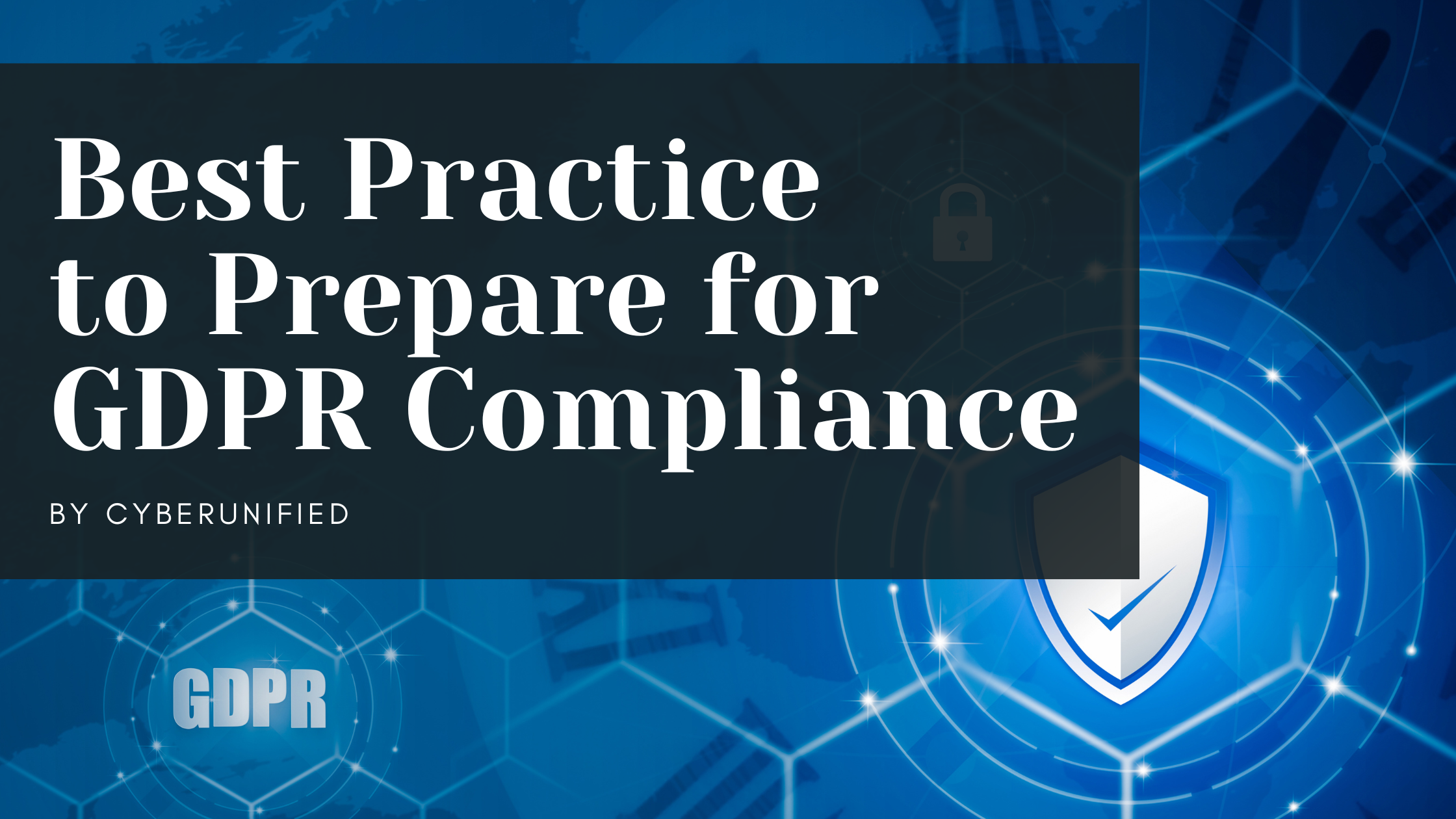
Compliance with the General Data Protection Regulation (GDPR) is one of the most important aspects of running a business today. It is of the utmost importance to ensure that any suppliers with whom you do business are likewise in compliance with GDPR. This helps secure consumer data privacy and guarantees that you are respecting EU privacy rules, which ultimately helps you avoid any significant fines or penalties. The best approach to ensure that customers continue to have faith in your business and remain loyal to you is to implement the best practices outlined in the GDPR. Understanding the GDPR’s recommended procedures should be your priority to avoid getting in trouble with the law.
A thorough acquaintance with the General Data Protection Regulation (GDPR) is necessary before taking any measures to ensure compliance. The best way to guarantee your company complies with this law is to read it. Do your homework on the General Data Protection Regulation and know how it affects your company. Check that you have all the information before moving further. Doing so is the surest approach to meet the General Data Protection Regulation (GDPR) requirements.
To ensure compliance with GDPR, it is important to document all the data processing activities of your organization. Create a detailed inventory of all the personal data your organization holds, the source of the data, who has access to it and what processes have been used to process the data. This includes collecting, storing, transferring, or using personal data and any third-party services employed. Doing this will help you identify any potential areas of improvement and ensure that you are following the best practices of GDPR. Besides, having a documented record of all data processing activities will be beneficial in the event of an audit or inspection by the GDPR compliant authority.
When all of your data processing operations have been documented, it is time to assess how well they measure up to the requirements outlined in the GDPR. If you do this, you can determine which parts of your operation do not adhere to the regulation. You will need to devise a strategy to deal with these problems to guarantee that you are adhering to the guidelines. You should work on developing this strategy throughout the period allotted for gap analysis and remediation.
It is essential to ensure that your business can adhere to the GDPR requirements, and the best way to do this is by updating your privacy policies. Your privacy policy should cover the areas of data collection, storage, and usage, as well as the rights of the data subjects. It should also include the processes for obtaining consent and how to handle requests for data access or deletion.
Put in the effort to make sure that all the principles of GDPR are properly implemented. Additionally, guarantee that any third-party providers have the appropriate safety measures established.
Keeping your business in line with the General Data Protection Regulation (GDPR) requires continual scrutiny of your operations. To ensure that data privacy is not breached, it is crucial that your company strictly adheres to the General Data Protection Regulation (GDPR). Avoiding problems that might emerge from failing to comply with GDPR is crucial. Additionally, ensure that all your processes, procedures, and systems are routinely assessed for compliance with GDPR. Maintaining Governance Risk Compliance with the General Data Protection Regulation (GDPR) and protecting personal data requires constant vigilance in accordance with the regulation’s tenets.
Ensuring that employees are knowledgeable about GDPR and its implications is also essential. Train them on safeguarding personal data in line with GDPR requirements. Furthermore, educate them on responding to requests from individuals who wish to exercise their rights, such as requesting access to, rectifying, or erasing their data.
It’s always important to be prepared for the worst. Create a plan to handle situations where a data breach or incident occurs. Ensure your plan includes how to notify individuals and authorities according to the law. You must be ready to act quickly if something happens, following GDPR principles.
Cyber incidents are any malicious attempt to access, disrupt, or destroy computer systems, networks, and data. That is why security controls must be implemented to detect, contain, and respond to such threats.

Cyber Unified is on the rise, driven by the vision of helping organizations stay secure. Our integrated compliance control automation and risk evolution covers all your cyber security needs, from governance and data privacy to digital asset protection and incident handling. We can help your board team spend money wisely on the right solutions and build simulations of internal and external audits and certificates.
The single platform for integrated risk management allows you to get earlier feedback to shareholders and have complete visibility of your organization’s cyber safety. We also guide global privacy and data protection laws, breach notification, Security frameworks, organization incident response and impact, Remediation Management and help you adopt cyber security risks standards and compliance. Our services also include developing customized IS policies for departments/organizations, data Protection and privacy cyber security awareness for all levels of employees, and up to 80% savings on money, time, and effort.
Complying with the GDPR is essential for any business operating in the EU. It is important to take the necessary steps to ensure that your company complies with the General Data Protection Regulation (GDPR). Ensure you understand the GDPR, document your data processing activities, assess any areas of non-compliance, update your privacy policies, implement technical and organizational measures, monitor compliance, educate your employees, and respond quickly to data breaches.
Cyber Unified security frameworks can also help you with integrated compliance control automation and risk evolution services. Following these best practices will help you comply with the GDPR and protect the privacy of consumer data.